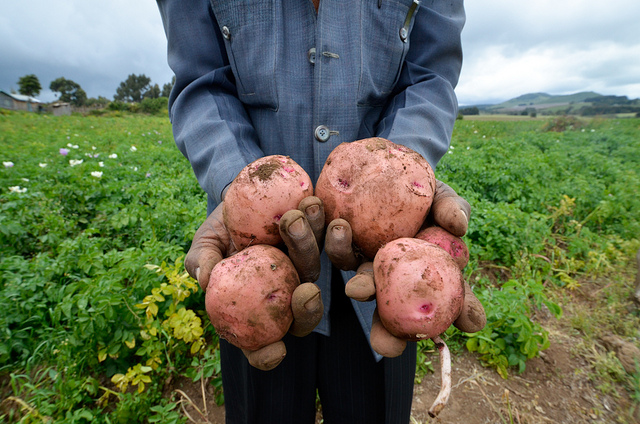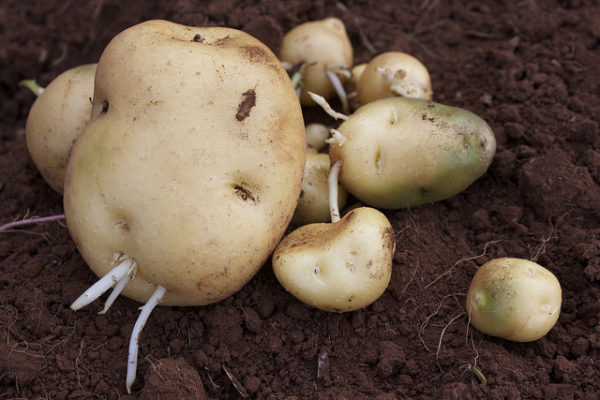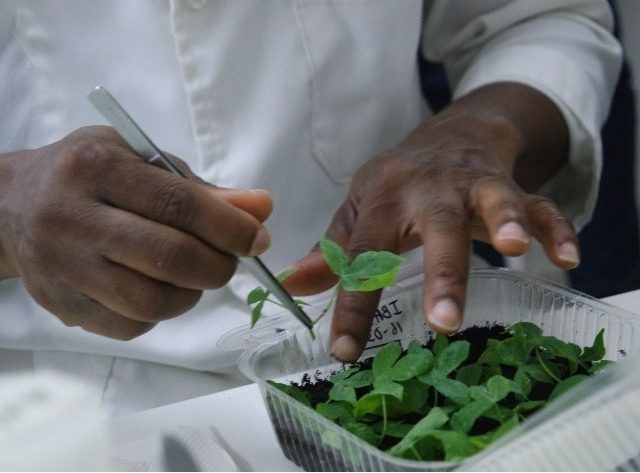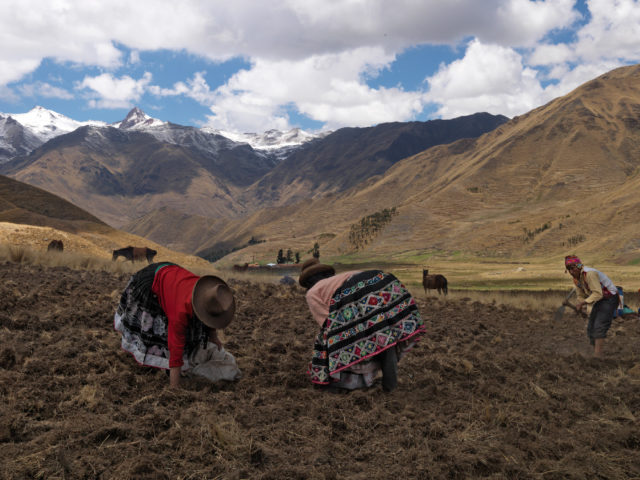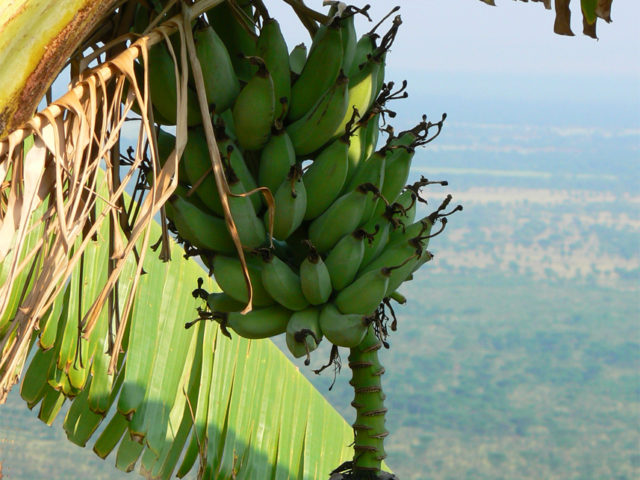Potato is the third most important food crop globally and over half of all production occurs in developing countries. However, the use of poor quality potato seed in these regions is significantly reducing yields and impacting the livelihoods of small-scale potato farmers and their families.
‘Potato seed’, or sprouted potato tubers that can be replanted, become degenerated through a buildup of pathogens and pests caused by successive cycles of propagation. Diseases can be contracted via pathogens present in the soil, air or through vectors like aphids. As potatoes are primarily propagated vegetatively, some of these diseases in the plant can be carried over to the next generation.
Typically, resource-poor small-scale farmers propagate their own potato seed from their fields or acquire them from neighbors or the local market. Research has found that these seed tubers often have poor health status, causing smaller yields and low quality potatoes that fetch lower market prices.
In industrialized countries, potato seed degeneration has largely been overcome through the establishment of certified seed systems. Farmers can purchase seeds that are tested and certified to meet a government-regulated minimum health status, helping to reduce the instance of disease.
However, attempts to establish such formal seed systems in developing countries have had limited success for numerous reasons. Many of these nations lack the infrastructure, resources, trained personnel and governmental or private sector institutions necessary to produce and regulate certified seed. Other factors including the high cost of formally certified seed, uncertain connections to markets due to fluctuating prices and other economic factors also play a role.
Recognizing the complex challenges that restrict the effectiveness of certified seed systems in developing countries, the authors of a new paper published in the journal Plant Pathology entitled, ‘Seed degeneration in potato: the need for an integrated seed health strategy to mitigate the problem in developing countries’ propose a combination of strategies to help farmers improve the quality of their potato seed, and in turn, their yields.
The authors argue that advocating the exclusive use of certified seed as a ‘silver bullet’ to manage degeneration in developing countries is overly simplistic. Instead they propose the adoption of an ‘integrated seed health strategy’ that is tailored to the local context. Such a strategy involves using a combination of host plant resistance and better on-farm management practices, in conjunction with strategically replacing diseased seed with certified or ‘quality-declared’ seed (when financially viable).
Such on-farm practices include ‘plant selection’ which involves visually identifying and selecting only symptomless plants as the seed source for the next season, and ‘roguing’ which is the process of identifying, removing and destroying abnormal plants that show symptoms of disease. These methods are both effective and low cost, however they do require farmer training in symptom recognition. Other management strategies such as using straw mulching to affect aphid flight activity also hold great promise for resource-poor farmers.
To aid the implementation of integrated seed health strategies, the authors call for further research in areas including understanding the interrelationships between risk factors affecting potato seed degeneration and cultivar resistance to degenerative diseases. In this regard, a globally collaborative study is currently underway as a part of the CGIAR Research Program on Roots, Tubers and Bananas (RTB). One of the objectives of this study is to develop models to predict degeneration that include the effects of host resistance and environmental risk factors.
The research for the paper was funded by RTB, the CGIAR Research Program on Climate Change, Agriculture and Food Security, the Kansas Agricultural Experiment Station and the Scottish Government’s RESAS division. In conjunction with the McKnight Foundation for the projects ‘Strengthening systems for native potato seed in Bolivia, Ecuador, and Peru’ and ‘Understanding potato seed degeneration in Ecuador’, Indian Council of Agricultural Research, and USDA Specialty Crop Research Initiative Grant.
